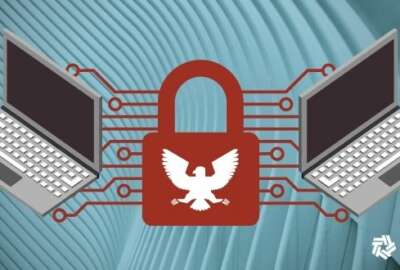To listen to the Federal Newscast on your phone or mobile device, subscribe in PodcastOne or Apple Podcasts. The best listening experience on desktop can be found using Chrome, Firefox or Safari.
- As sexual assault continues to be a bigger issue in the military, a new study finds it is affecting retention. Sexual assault incidents make military members twice as likely to try to leave the military in the following 28 months, according to a new study from the RAND Corporation. The data is from a 2014 survey, however, the study estimates that at least 2,000 people left the military over a two-year period because of sexual assault alone. The study also says that about 8%, or 8,000, military separations during that time were due to sexual harassment. RAND is recommending that the Defense Department prioritize sexual assault prevention and response.
- House Democrats unveiled a proposal to give federal employees more paid leave during the pandemic. The new proposal would give employees up to 15 weeks of paid leave to recover from COVID-19, care for a sick family member, quarantine or care for children who are learning virtually from home. Employees would have to use their own paid sick leave first before tapping into this new leave. The proposal is part of a budget reconciliation package that House Democrats are writing. The price tag for the new paid leave proposal is $570 million. (Federal News Network)
- The Agriculture Department is deploying some of its own personnel to help with the federal government’s COVID-19 response efforts. The Forest Service assigned 64 incident management team members to help staff national COVID vaccine centers. These employees will help FEMA with logistics at mass vaccination sites. The USDA Animal and Plant Health Inspection Service deployed 63 employees to help administer vaccines at mobile clinics. They’re working with FEMA in multiple states.
- The Agriculture Department also completed a major milestone under the IT modernization Centers of Excellence effort. It launched the AskUSDA Contact Center to serve as the one “front door” to help deliver a centralized contact center experience that aims to helps citizens get consistent and streamlined information. USDA says the program supports citizen questions through the web, on the phone, through an online chat or through email. Through the analysis with the COE, USDA consolidated 748 services that tried to serve 903 unique customer attributes.
- The Space Force is considering structuring its components differently than other military services. Space Force Director of Staff, Lt. Gen. Nina Armagno, says the military’s newest branch is thinking about creating a combined active and reserve corps. The service would then potentially have a separate Space National Guard. Armagno says the option would make it easier to move between active duty and reserve and may attract more talent.
- Changes at the top for the Millennium Challenge Corporation. Alexia Latortue joins as deputy chief executive officer, along with Cameron Alford as vice president and general counsel. Latortue is a managing director at the European Bank for Reconstruction and Development. Alford will arrive from U.S. Bank, where he was senior counsel. He also has experience at the agency now known as the U.S. International Development Finance Corporation. Also joining as appointees by the Biden administration, Aysha House as vice president for congressional and public affairs, and Fatema Sumar as vice president for the department of compact operations.
- Top lawmakers on the Senate Homeland Security and Governmental Affairs Committee introduce a bill to make agencies’ annual budget requests more accessible. The Congressional Budget Justification Act from Senators Gary Peters (D-Mich.) and Rob Portman (R-Ohio) requires agencies post budget request documents to a single website each year. The bill tasks the Office of Management and Budget with keeping the site updated with links to the documents, and the dates of when agencies submitted them. The bill passed the House last year, but it didn’t make it past the Senate.
- When it comes to figuring out how the SolarWinds breach impacted agencies, lawmakers now have one belly button to push. The White House says Anne Neuberger, the deputy national security adviser for cyber and emerging technology, is leading the federal response to the SolarWinds attack. The announcement comes a day after the chairman and vice chairman of the Senate Select Committee on Intelligence asked for a single point of contact. Senators Mark Warner (D-Va.) and Marco Rubio (R-Fla.) wrote to ODNI, NSA, the FBI and CISA requesting that one person coordinates the response, sets priorities and directs resources to where they are needed the most. The lawmakers called the response effort so far disjointed and disorganized.
- Congress is looking at giving DHS’s Cybersecurity and Infrastructure Security Agency a larger role in protecting federal agencies from cyber threats. Few agencies have the resources to defend themselves against a sophisticated cyber attack. But former CISA director Chris Krebs tells the House Homeland Security Committee that the agency should provide cyber support as a shared service through its Quality Service Management Office. “So give them the opportunity to comply, or give them an option where they, the CIO and the CISO shop, can just turn the keys over to CISA.” Krebs says that CISA could develop a secure cloud email service that is more resilient to cyber attacks than the 100-plus instances of email across civilian federal agencies. (Federal News Network)
- Doctors at the Veterans Affairs San Diego Medical Center biopsied liver tissue from seriously ill patients without their consent. The surgeons went in through the jugular vein. The matter was brought to light by a whistleblower and confirmed by the Office of Special Counsel. VA said the biopsies were standard care for hepatitis patients, yet also admitted the doctors violated research protocols. Patients suffered complications, including bleeding from the neck and liver that required transfusions, and in one case a life-threatening emergency.
Copyright
© 2024 Federal News Network. All rights reserved. This website is not intended for users located within the European Economic Area.



